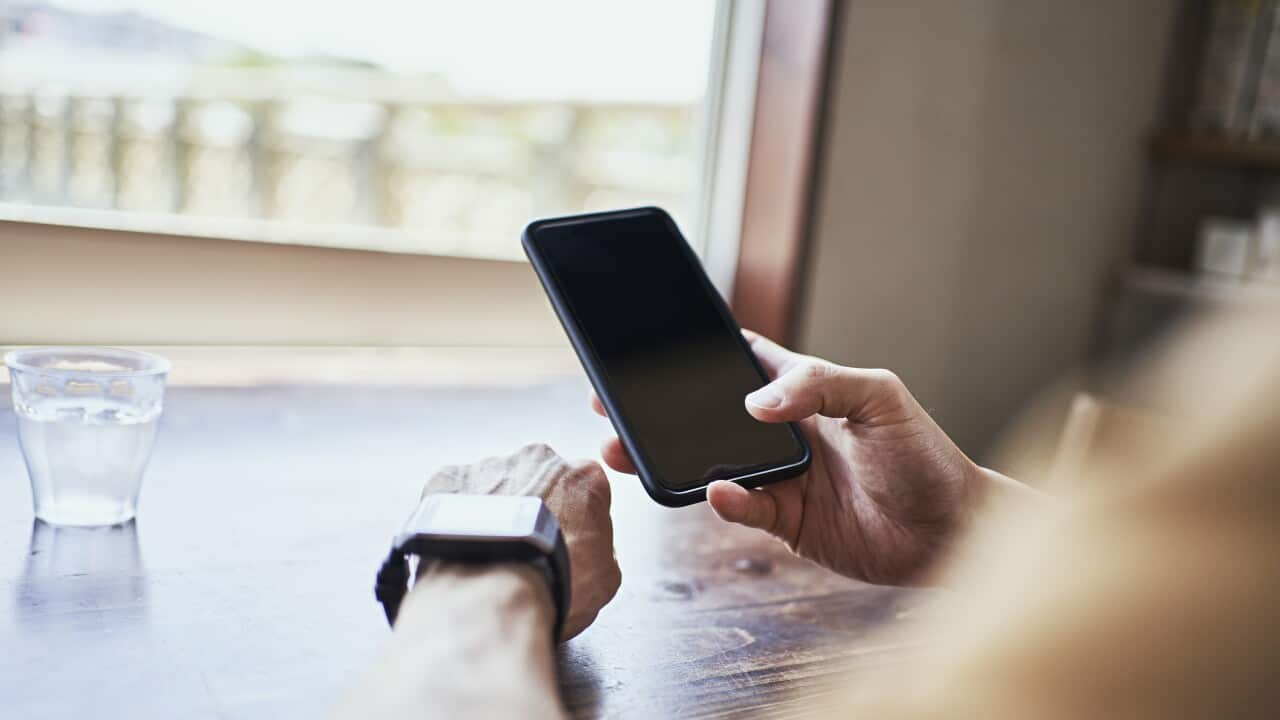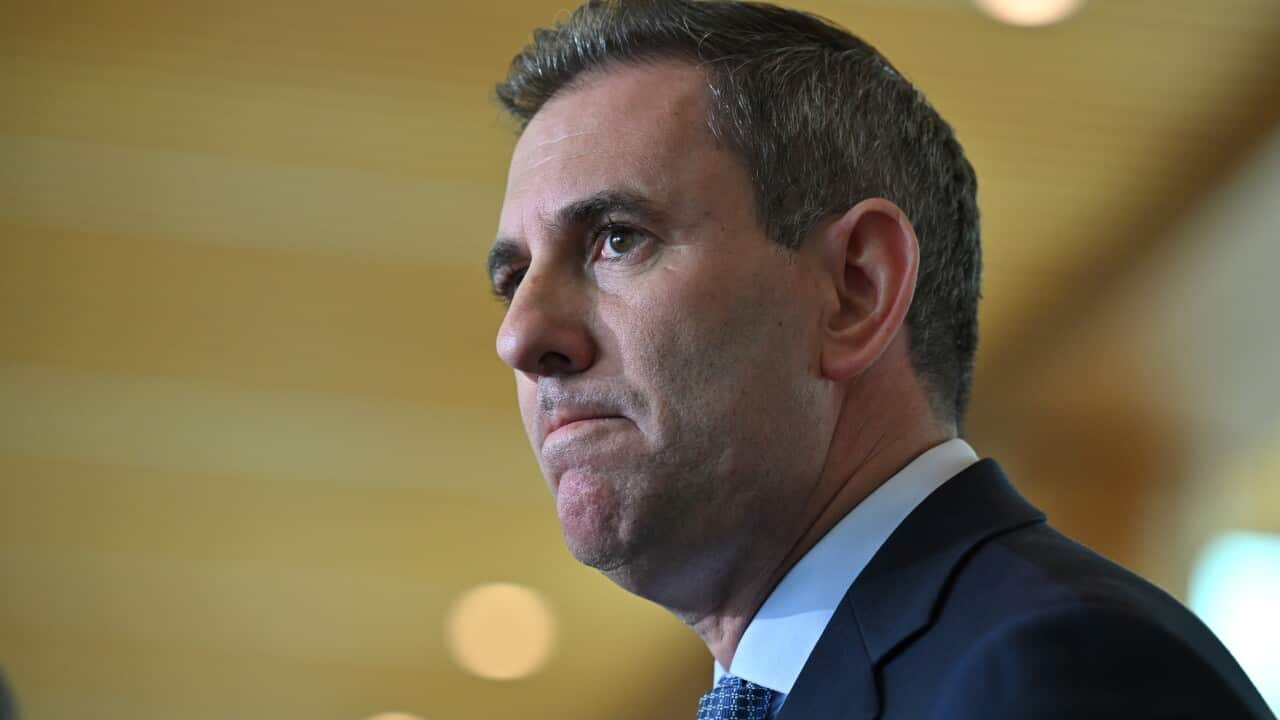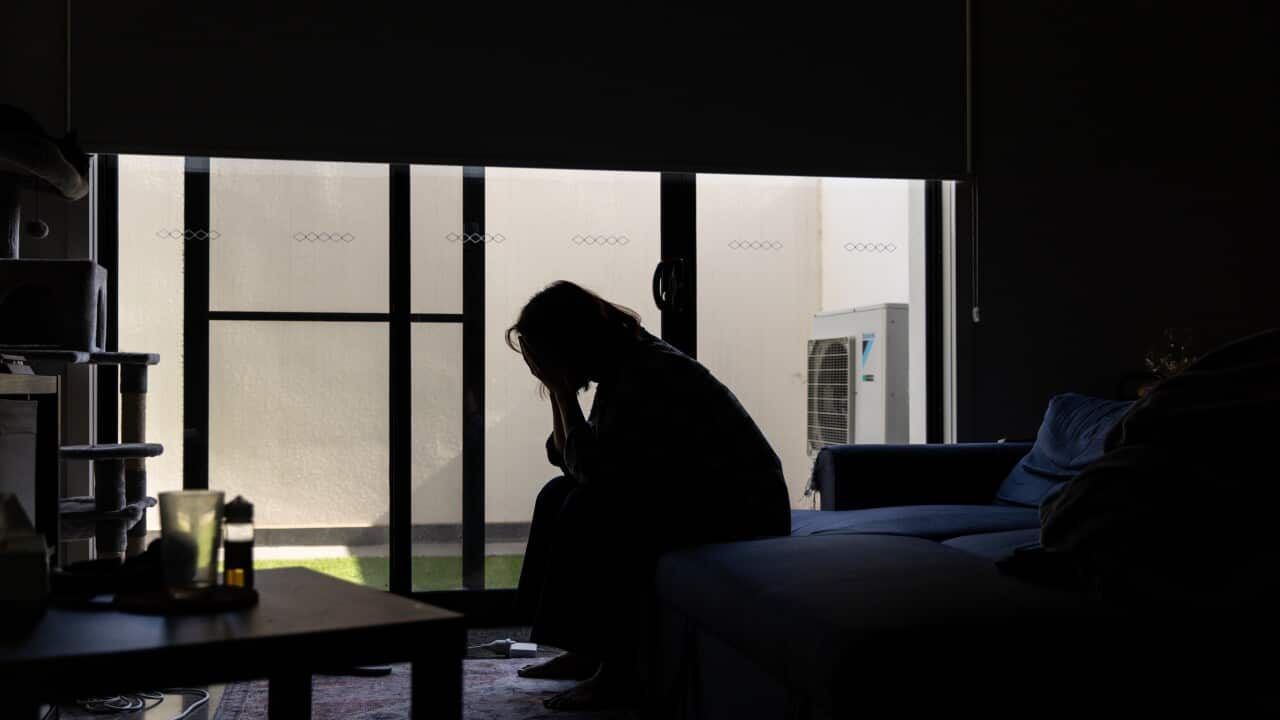TRANSCRIPT
Efficiency and control — two obsessions of modern life.
And nowhere is this more evident than in our need to know where our loved ones are — at all times.
From family locator app Life360 to Find My iPhone and Find My Device, increasing numbers of us track the whereabouts of our children, our ageing parents, sometimes even our partner and our friends — 24 hours a day.
CEO of Relationships Australia New South Wales Elisabeth Shaw says it's easy to justify our desire to track.
"I think part of it is the speed of life. Instead of leaving anything to chance - that 'I'm not sure when the family's coming home tonight' - there's this need to know, there's a need to know and I need to know now … then we put some nobility around that. We say, well, because life isn't as safe as it used to be, then this is a reflection of how much I love my family."
In many ways, Australia is actually safer than it used to be.
The number of offenders police dealt with in 2023–24 was at its lowest recorded level since 2008 to 2009, while we've seen a reduction in homicides and robbery.
However, certain crimes have increased in recent years, such as domestic violence-related assaults and sexual assaults.
With these apps, location must be consented to by both users to be visible.
It's hard to get figures on how many people in Australia are tracking others or being tracked; Apple says it doesn't have access to that info and Life360 didn't respond to SBS requests for information, though it seems huge numbers of us are doing it.
Christine Milostnik has used location tracking for years, finding comfort in knowing when her children returned from school when they were younger and, last year, knowing her 18-year-old son was safe as he backpacked through Europe.
"It came like an agreement before he went so both sides were feeling very much like safe. I called and said, oh, you haven't moved for 24 hours. And then he said, yes, I'm sick. It was also good for him that someone was looking after him."
For six years, she was also able to monitor her mother with dementia, who would sometimes get lost.
"Everybody could see where my mum is so if she got lost, we would know where she is. When she went to Brazil, I knew where she was. So having that helped me a lot because there was one day that she got a little bit confused from going to the church in the morning coming back, and then I could ask a friend of mine to pick her up."
In the Milostnik family, everyone has been in favour of tracking, though Christine says she no longer tracks her children now they're older.
"It's kind of a contract in my view, between you and the kids or you and my mother or whoever you're doing that - it's like to understand expectations."
Relationships Australia's Elisabeth Shaw says tracking with everyone's consent can be immensely useful.
"I have known particularly younger people to invite their friends to track them when they're going on a first date for example as part of safety. We sometimes get loved ones to track us in an Uber for the same reason. So I think there are ways which are very much in the individual's control, where they can invite people in and then exclude them at other times. I think in those sorts of ways where there is regular checking in on consent, the clarity of purpose, all of that is actually a great benefit in how we live our lives."
But Bridget Harris, director of the Monash Gender and Family Violence Prevention Centre, worries that this normalisation of surveillance is worrying.
"I definitely think that we've had a shifting in norms around privacy. And so that's how much information we share, the devices we share, and also expectations about that. So expectations that we are, for instance, findable by our partners, by our children, by everybody … surveillance is occurring in all parts of our lives: at work, at school, at universities, in leisure circles, in a lot of business and commercial things, and also with the government. And so we normalise surveillance too then in our personal lives."
Research published by the eSafety Commissioner in May said almost one in five young adults age 18 to 24 now think it's reasonable to expect to track a romantic partner whenever they want.***
Ms Harris says younger generations are by far the most accepting of surveillance.
"We seem to see a bit of a trend where it's more normal or expected that you do allow your partner, for instance, to access your device, to access your accounts. It's just not the same kind of expectation of privacy as there maybe was in older generations."
Which begs the question: are parents priming children and young people to accept constant monitoring without questioning?
And is this ok?
Alyssa Carter believes it isn't.
She's always refused to monitor the whereabouts of her now-16-year-old daughter, and says her daughter would be horrified at the suggestion.
"It's definitely spying … I think she would feel absolutely that it was an invasion of her privacy and her autonomy … There would definitely be a question of trust from her. Of why can't you just believe where I am? ...The amount of tracking that some parents do with their teenage kids, and these aren't young teenage kids, these are older teenage kids, it's just beyond, it's so detailed. Some parents have radiuses from the house, so alarms go off. I couldn't even imagine doing that."
Ms Carter says she would never allow a partner to track her location.
"I wouldn't like a partner to track me at all. I think it is absolutely for myself, an invasion of my own privacy. I would be absolutely mortified if one of my daughter's partners requested her to do that … that's absolutely crossing boundaries … There is no reason for a partner, as far as I'm concerned, to want to know where you are."
Ms Shaw says as is often the case, it's not so much the technology that's problematic, it's how we use it.
When it comes to tracking, it's about the intent and mutual consent.
If you're checking where your child is on the bus so you know when to put dinner on, that's one thing, she says.
But if you're acquiring evidence for an inquisition, and the person on the other end doesn't feel that they have any control over their privacy or movements, that can erode trust and lead to resentment.
"Generally how we use the apps reflects the state of the relationship. So if trust is already low, for example, when I've seen couples where there's been infidelity, the tracking has a very different meaning than it did prior to finding that out … Where there's never been any issues with trust or any need to control, then no one will comment on this, the family culture will be preserved."
In the worst cases, tracking can enable coercive control — especially troubling at a time when domestic violence levels in Australia are at record highs.
Ms Harris says normalising tracking may also lead to situations where victims’ calls for help are not taken seriously.
"If someone's trying to articulate the violence of their experience, they're trying to articulate their lived experience, it might be discounted by someone else. They might say, oh no, that's really normal. My partner and I do it too bur what is actually happening is very different. We potentially risk not responding to disclosures that people are making in a more productive way."
Elisabeth Shaw says furthermore, tracking a loved one can shift expectations in a relationship.
"People are judging the speed at which their partner responds. You didn't respond for an hour, so that means you don't love me. We are conflating sometimes access with love and devotion, and I think we've got to be very careful when we get into that space because ultimately speed of connection doesn't measure quality of relationship at all."
So what if two parties don't agree on how they're tracking or being tracked?
Ms Shaw says this indicates a problem of power and control, and warrants a conversation.
"You have to solve the disagreement outside of the app, so one person doesn't just get to keep going. I think it's very important that you discuss the meaning of it, and even if someone dresses up their behavior as good intentions or caring and concern, if the other doesn't experience it that way, then the issue has to be dealt with."
Bridget Harris adds it's important people talk about what's making them feel uncomfortable.
"If we have a bit more of a discussion and reflection of the impacts and what behaviors are making people feel uncomfortable, uneasy, fearful, then we can start to really think about do we need to change these norms or do we need to change these practices, or should we reflect on them a bit further? Or should we talk about digital consent and privacy further?"
Elizabeth Shaw says as well as having conversations with others, we also need to check in with ourselves on our values around consent, respect and privacy — especially as our children become adults.
"Sometimes the point we realise we've gone too far is when the person on the other end of it says, I don't like this. And that's why when that happens, we need to sit up and take notice. Has it actually run away with this on this occasion and we should call back? Is what I'm doing truly promoting independence or is it in fact undermining autonomy?"
Those experiencing tech-based abuse should visit the eSafety Commissioner's website, which provides resources and guidance.
And if you or someone you know wants to talk about family or domestic violence, call 1800RESPECT on 1800 737 732 or call Lifeline on 13 11 14. In an emergency, call 000.













